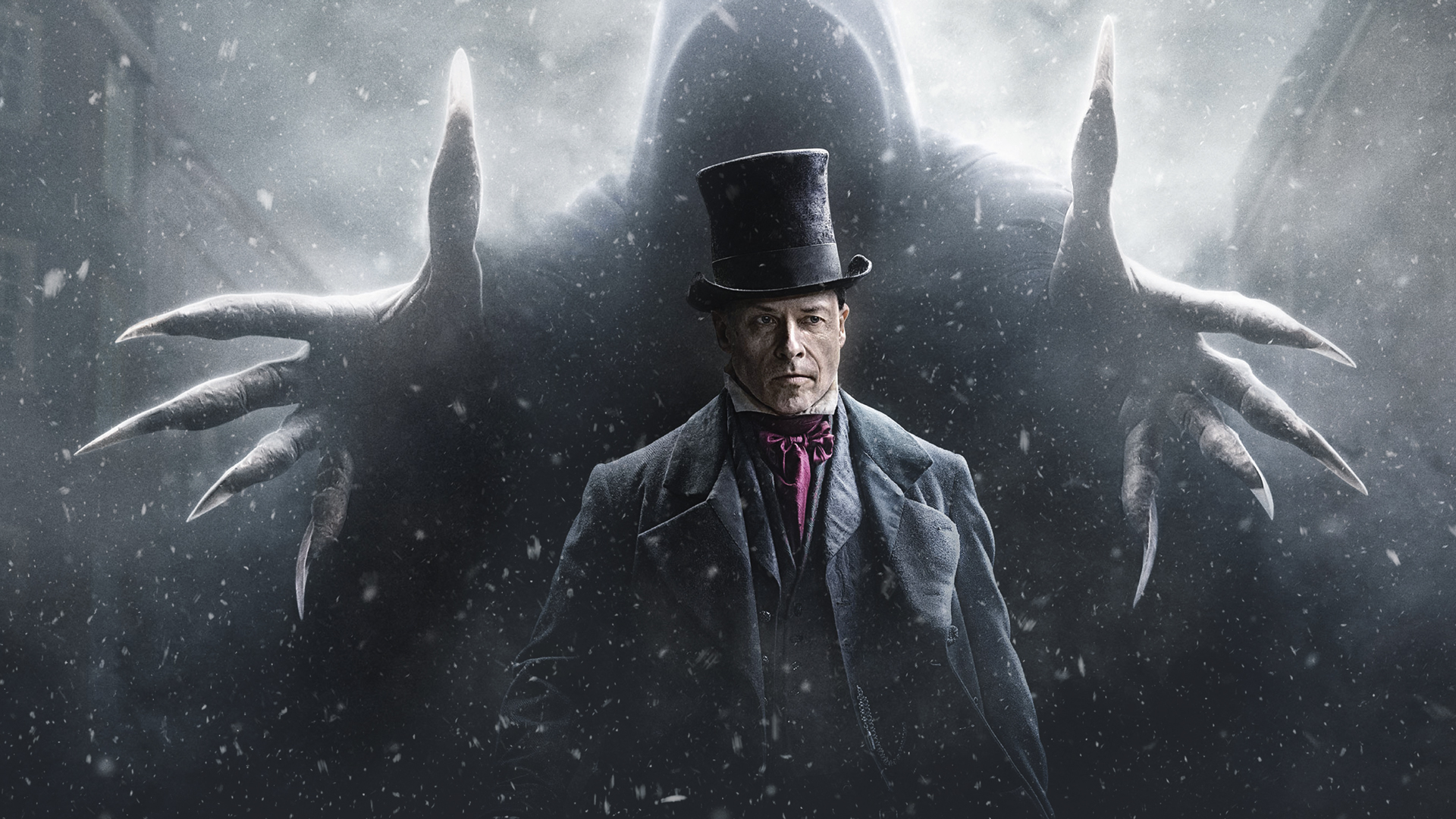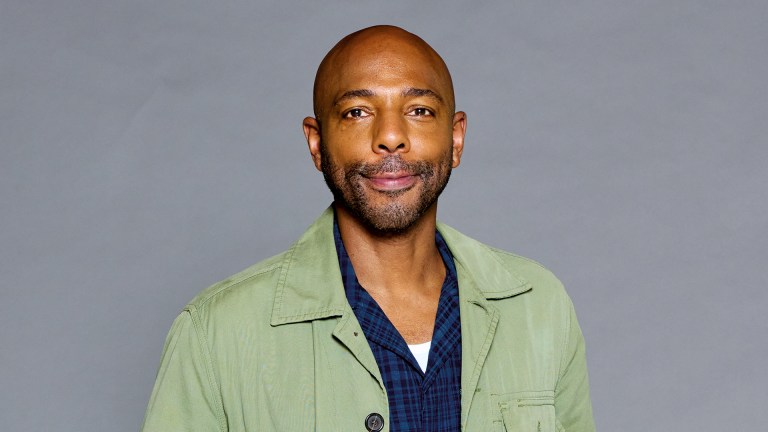There is politics woven into every scene. Knight smiles when The Big Issue suggests some of the allusions we picked up on in episode one – which can be read at various times, should one choose, as comment on the Grenfell Tower tragedy, the threat of NHS privatisation, the impact of austerity and the prevalence of in-work poverty.
“I’m not doing this to hammer home a message,” says the writer. “Because any message in the adaptation is in the original, so the message has been there for a long time. But Christmas, for all its faults and commerciality, is a good time for people to review how they behave.
“And if Dickens teaches you anything, it is that you can convey a strong message without being overly political. I hope that is what this adaptation does with the original message – which is about wealth and poverty and how big that gap is and why it is there.”
Guy Pearce, star of LA Confidential and Memento, is an intriguing, inspired choice to play Scrooge – intense, brooding but with a sharp wit beneath his bluster, while Stephen Graham’s remarkable year continues with a wonderful performance as Jacob Marley.
“I didn’t want Scrooge to be the skinny old man that he typically is,” says Knight. “I wanted the idea that he’s more recognisable as us, so that we can see ourselves in him and see him in ourselves. Also, because he is a little bit younger, there is more possibility at the end that his redemption might mean that he’s going to go off and do good things. I want to explore the idea that his individual redemption is not enough.”
With the extra time afforded to this episodic version, Knight delves into Scrooge and Bob Cratchit’s relationship more deeply.
Advertising helps fund Big Issue’s mission to end poverty
“I wanted to imagine a relationship that had been going on for long enough. And the way authority erodes over time with familiarity. I wanted to get across the idea that Bob Cratchit is someone who can’t say out loud what he is thinking but can certainly make it plain.”
“I think the mistake we all make is to think history goes in a straight line. It goes in circles.
Knight also examines the chilling effects of Scrooge and Marley’s greed. On the workers who have died in poverty, on people whose lives have been destroyed by their penny-pinching ways. On the power imbalances in society. And on themselves.
“Dickens’ point was that power without compassion is dangerous and lethal. But beyond that, compassion is not enough,” he says. “I mean, compassion is good. But Dickens was talking about human compassion as a solution to the problems. I wanted to suggest that there’s more to it than that.
“The sentiments within A Christmas Carol are absolutely universal. It’s better to give than to not give. It’s better to be cordial and nice than to be rude and horrible. Those are absolute. But beyond that, there are suggestions that certain forms of behaviour, in terms of commerce, are not only unfair, but they are generally detrimental. It indicates the person who suffers the most as a consequence of Scrooge’s personality is Scrooge. He has a terrible, miserable life. So everyone suffers.”
I wonder whether Jeff Bezos lives a miserable life. Maybe he does.
“We could have modernised it. But every generation will see what the story is and apply the examples to things that are contemporary.”
Advertising helps fund Big Issue’s mission to end poverty
Knight’s additions to the story, while audacious, really work. Perhaps because, as he says, he has forensically explored the text for roots from which these additional stories can grow. The result is a timely reminder about big issues facing people living in poverty.
“I think the mistake we all make is to think history goes in a straight line. It goes in circles. The problems talked about in A Christmas Carol, let’s be honest, were much worse then. There was hunger and poverty and there is hunger and poverty now, but I think society inch-by-inch does improve.
“But we assume that relative improvement is like a force of nature, that every generation will be slightly better off than the previous one. I don’t think that’s true anymore. So that’s alarming. That progress, which has been going on probably since 1830, where there’s been an assumption that the next generation would have a better life and a longer life and a healthier life – I wonder if that’s now starting to erode.”
If Knight is angry about this, he is able to use some strong language that fans of Peaky Blinders will recognise but that hasn’t been heard in previous BBC Dickens adaptations. Does he expect a crossover of fans – from watching Tommy Shelby to Ebenezer Scrooge?
“I hope there will be characters they can respond to and characters they can boo at the telly, the same as with Peaky Blinders,” says Knight. “This comes from the same place – in my head – so there will be similarities. Dramatists change the way people speak radically if something is set more than 100 years ago and I don’t think people did speak that differently. It’s just that people wrote it down differently.
“In the 1840s, people did swear. But Dickens wasn’t allowed to use swear words. If he was alive now he certainly would.”
Advertising helps fund Big Issue’s mission to end poverty
A Christmas Carol airs on BBC One on December 22-24 at 9pm





